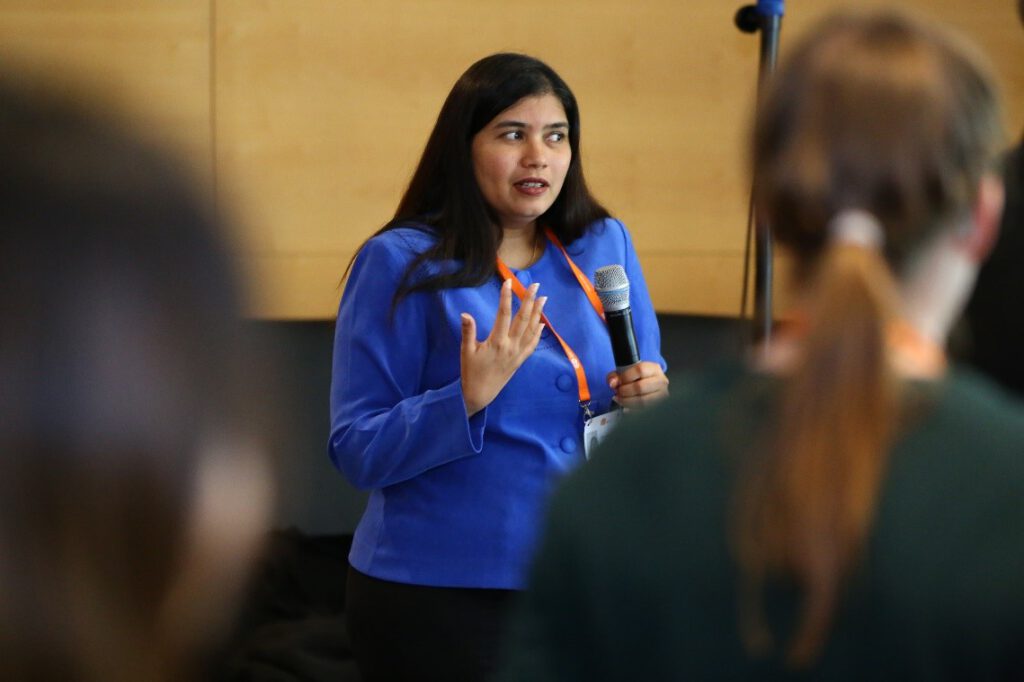Blog
Women’s Leadership Is Absolutely Critical
Sometimes there is a certain moment in life that leads you to take the initiative and get involved in the community. Although Elsa Marie D’Silva had previously thought about social engagement, it was the brutal gang rape of the young student in Delhi in 2012 that led her to focus her work more on supporting women, raising awareness about everyday sexualised violence against women, and taking concrete action: “If it didn’t work out, I could always go back to a corporate job. But if I didn’t make that decision then, you know, at that time, I didn’t think I would have the courage to make it in the future.”
Since establishing her Red Dot Foundation and Safecity, a platform that documents sexual harassment and abuse in public spaces in 2012, Elsa has gone through many programmes and received grants. One of them was the U.S. Fortune Mentoring Program, where she talks about the development of her work over the past years in the alumni podcast.
With the help of a crowd mapping and crowd sourcing tool, Safecity encourages people to report their experiences of sexual and gender-based violence anonymously. The data enables and visualises location-based trends on a map as hotspots. Thus, incidents become visible and problems are recorded. “What we were trying to do with Safecity was to make it more visible by bridging the data gap, putting it in a format that enabled people to understand what was happening, where, and also to make the data available in the open source format so that you could use it in whatever way you wanted to use it at the individual level to improve your situation awareness. Or engage with your community to find solutions with you”, says Elsa Marie D’Silva.
This is also about the important task of involving men: “You have to convince the men and boys around you to say that this is a problem. They may never have been challenged before. They may never have been spoken about it before”. And it is also about engaging with local differences: “Every city has its own dynamics and knowing what will happen where is very important because when it comes to the kind of crime that we are seeing surface in our data and in our mapping, Delhi is very different from Bombay, and very different from Kerala”.
Elsa’s organisation works directly with the communities affected, collecting and analysing reports. It takes the outcomes back to the community and involves them by asking them what they actually want to do to solve the issue.
In the 5th episode of the podcast Voices of Exchange by the U.S. State Department ECA Alumni Affairs you will also hear from Elsa how murals can help in a very practical way to increase the safety of women and other vulnerable groups. You will learn that equality means giving space to women, and that creating visibility has a multiplier effect. Perspectives also need to change so that women are seen as equals: “You know, we don’t have that problem with men, right? So when one man fails as a leader, we say, “Okay, he was a bad person,” but when one woman leader fails, because we are so few in number, they put the whole onus on the gender saying, “Oh, you know, the entire lot of them are bad.”
About the author:
Elsa Marie D’Silva is a social entrepreneur with interests in the fields of social and personal development, peace, aviation and mental health, and she is also the founder of the Red Dot Foundation (Safecity), a platform that crowdsources personal experiences of sexual violence and abuse in public spaces.
Published on June 30, 2021.
Photo credit: Deutsche Welle
